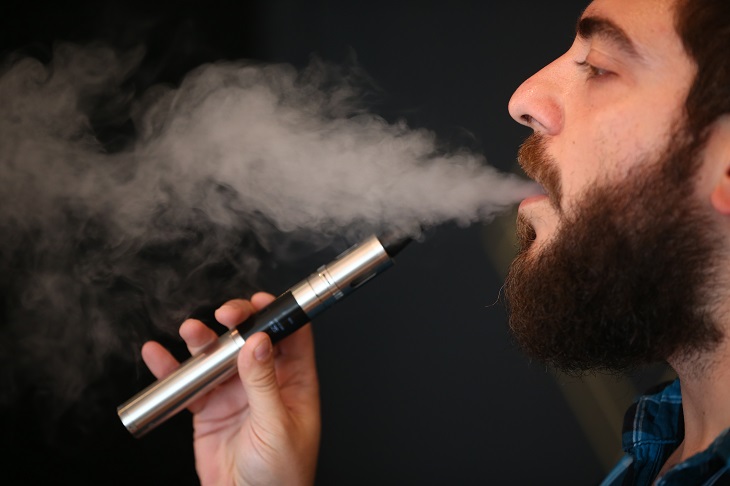As I stated in my speech On Freedom in August 2021: ‘On many occasions in the last year I have addressed the Senate in regard to freedom as a counterbalance to medical tyranny.’
The speech was given in relation to the Covid lockdowns unleashed on Australia from March 2020 onward in the name of ‘public health’. During this time another significant, but largely unknown, medical tyranny was inflicted on Australians.
For ‘public health’ reasons, nicotine vaping products (NVPs) came under strict regulation after instruction from the state and federal governments. Vaping products – which now require a prescription – are commonly used as a replacement for harmful alternatives such as cigarettes and cigars.
Despite being widely acknowledged in global studies as a way to quit smoking, they were put under prescription-only use to, ‘balance the need to prevent adolescents and young adults from taking-up nicotine vaping (and potentially smoking).’ Oddly, young adults can still take up smoking directly without a prescription.
There is no guarantee a prescription will be issued, even to existing smokers looking to quit. The comments made alongside the regulatory change make it clear that doctors are ‘under no obligation to prescribe a nicotine vaping product if they do not think it’s appropriate’ and add a strong preference for using existing gums and patches.
‘From October 1, 2021, consumers require a prescription for all purchases of nicotine vaping products, such as nicotine e-cigarettes, nicotine pods and liquid nicotine. This includes purchases from Australian pharmacies and from overseas. It remains illegal for other Australian retailers, such as tobacconists, ‘vape’ shops and convenience stores, to sell you nicotine vaping products, even if you have a prescription.’ – from the Therapeutic Goods Administration (TGA).
This risks establishing a ‘Nicotine Vaping Cartel’.
Cartels act like monopolies, and whether this was intentional or accidental by the state and federal governments, consumers will find the price of vaping products kept artificially high. At the same time, quantity and quality are likely to fall.
None of this appears to be in the interest of ‘public health’. Vaping products are primarily used by smokers to help them quit, with vaping being 95 per cent less harmful (according to the Royal College of Physicians in the UK).
Smoking and vaping are entwined industries – being substitutes, not complements – of each other. The responsiveness of these interlinked industries is known as ‘elasticity’ by economists.
There have been dozens of studies in the past decade, including the 2021 Canadian study which found: ‘The literature on cross-price elasticity emerging from the analysis of massive data banks [supports] that the two product types are substitutes rather than complements.’
A 2021 American study inter alia further quantified that: ‘A $1.00 increase in e-cigarette prices reduces e-cigarette sales by roughly 29 per cent, while a $1.00 increase in cigarette prices reduces cigarette sales by roughly 7 per cent.’ While a 2018 Australian study concluded: ‘Countries with less restrictive NVP policies would be associated with lower cigarette demand.’
In short, when a government encourages vaping, it eats away at the tobacco market share. Surely, this would be in the interest of ‘public health’?
The question has to be asked why both Australia’s state and federal governments are going out of their way to demonise vaping when their stated objective is citizen health. Cui bono, or who benefits?
Financially, the producers and tax beneficiaries of cigarette sales stand to lose the most from a thriving vaping market. In particular, Australia’s ‘sacred’ Therapeutic Goods Administration – who imposed the regulation – relies on these industries for funds. The TGA states, ‘the vast majority (around 96 per cent) of [their] funding is generated through [industry] fees and charges.’
This 96 per cent translates into around $178 million out of their $185 million 2020-21 revenue. While not all of it comes from the smoking industry, some of it does.
The new laws are already in force, with a $170,000 worth of fines issued to vaping advertisers and importers by the TGA in November, one month after they were implemented. Included in this figure were eight infringement notices worth $106,560 given to Mason Online regarding alleged advertising breaches.
The TGA’s 2020 Regulation Impact Statement (RIS) formed the basis for the Medical Vaping Regime (MVR). It had all the hallmarks of a predetermined outcome in favour of a Monopoly Medical Model. That is, it did not seriously consider any practical alternatives like a Competitive Consumer Model, there were no proper cost benefit analysis performed, and the regulator undertook their own review.
The latter is the most concerning, given it does not align with the Australian standard of best practice since the formation of the National Competition Policy (NCP).
The TGA vaping hub has a web page regarding the next scheduled review of the MVR where it says: ‘The regulatory reforms will be reviewed in the second half of 2022.’ There is really only one organisation in Australia capable of undertaking a well-rounded, unbiased, and inclusive review of MVR: the Productivity Commission (PC) – more specifically in terms of the Productivity Commission Act 1998 (PC Act).
I am naturally very suspicious of any overly big institutions and businesses, but the TGA’s hypocrisy on ‘freezing out’ Big Tobacco whilst unashamedly ‘being in bed’ with Big Pharma really does go ‘beyond the pale’.
The TGA always justifies this through Article 5.3 of the WHO Framework Convention on Tobacco Control requiring that: ‘In setting and implementing their public health policies with respect to tobacco control, Parties shall act to protect these policies from commercial and vested interests of the tobacco industry in accordance with national law.’
Firstly, Australia is sovereign, not controlled the WHO and their overlords in Beijing. Secondly, ‘public health policies’ should not be about ‘tobacco control’ and prohibition, but about Tobacco Harm Reduction for free and consenting adults. Thirdly, Big Med, Big Pharma, Big Public Health, and Big Government are just as much ‘commercial and vested interests’ as Big Tobacco. All of them have jaded pasts with despicable political regimes.
Thus, given Big Pharma is no better than Big Tobacco, the TGA must let the Productivity Commission do their job in 2022. May the best model win.
Malcolm Roberts is a One Nation Senator for Queensland. This article was co-authored by Darren Brady Nelson – Chief Economist at LibertyWorks Brisbane and a policy advisor to the Heartland Institute.
Got something to add? Join the discussion and comment below.
Get 10 issues for just $10
Subscribe to The Spectator Australia today for the next 10 magazine issues, plus full online access, for just $10.

























Comments
Don't miss out
Join the conversation with other Spectator Australia readers. Subscribe to leave a comment.
SUBSCRIBEAlready a subscriber? Log in